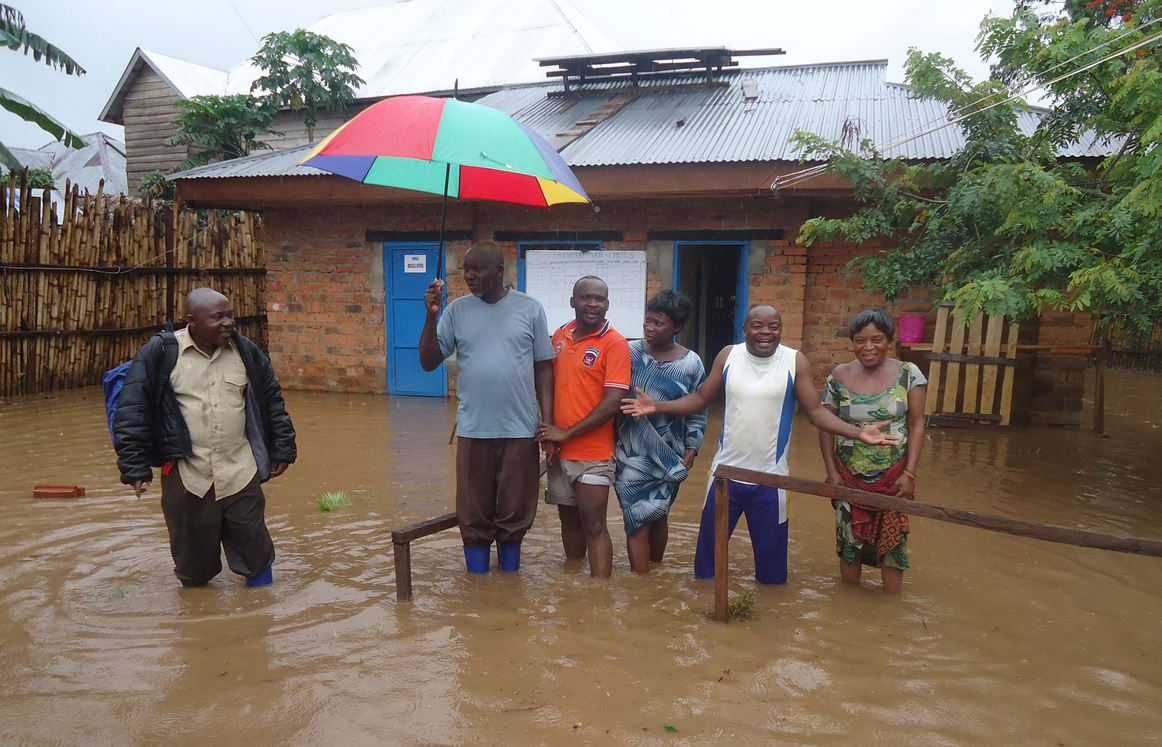Shaping the future: Our strategy for research and innovation in humanitarian response.

Shaping the future: Our strategy for research and innovation in humanitarian response.


There has been a conflict in Eastern Democratic Republic of Congo (DRC) for over a decade. Although the civil war officially ended years ago, the eastern region of the country remains one of the world’s worst humanitarian crisis zones. Because of the conflict, the region has been abandoned to look after itself, and reproductive services are poor.
Reproductive services are in urgent need of improvement; the health staff are not well trained, not motivated and because of the security situation, most qualified staff have abandoned health facilities to escape to other areas where they are relatively safe.
Because of this lack of safe reproductive care, International Medical Corps, along with the Centre for Disease Control (CDC), the University Research Co., LLC (URC) and the United Nations Fund for Population Assistance (UNFPA) were awarded funding to carry out a research project to analyse the current situation and develop and implement a training package to improve the quality of reproductive care and measure the impact.
I believe a research programme approach is vital in developing a reproductive care training package that delivers real improvement for patients in eastern DRC.
I have previous experience working on a similar programme in another country to improve the quality of care for malaria patients. The quality improvement training package we developed as a result had positive feedback both from health providers and from patients. At the end of the training and intervention, health providers were happy because it helped them to understand the gaps in their service delivery and build capacity in malaria management. Equally, it encouraged patients to go to the health services as they knew the quality of care would be high.
Our aim is that by implementing this research-based approach for reproductive care in emergencies, we will produce similar improvements.
International Medical Corps launched the programme through a start-up workshop and we have now completed the baseline data collection phase (both qualitative and quantitative data). This involved training exit poll data collectors, Focus Group Discussion facilitators and delivery observers in collecting data. The baseline data has been collected and will be analysed by the CDC. This will inform the development of our quality improvement package that will be implemented by the URC in collaboration with International Medical Corps. This project demonstrates how collaboration between an NGO, UN systems and research institutions can contribute to improve the lives of many.
The project has two intervention arms, one of which will act as the control. We are currently providing training in basic emergency obstetric and neo-natal care in both arms of the intervention. Following this, we will deliver the quality improvement package in one of the intervention arms. In order to provide effective sexual and reproductive health care services to populations in crisis, a Minimum Initial Service Package (MISP) was established by the Inter Agency Working Group for Reproductive Health in Crises as a set of priority activities to be taken in a coordinated manner by trained staff during the onset of an emergency.
The next phase of the project will be developing quality improvement training. These will be delivered by the URC. Health providers will implement what they have learned for about a year after which, data will be collected to compare the baseline information and the level of improvement after the training. This will be done during the second year. After we have collected data to assess the level of improvement, the quality improvement package will also be implemented in the arm of the study that didn’t receive it.
The major challenges we face in delivering this programme are logistical. For instance, the routes we must take to carry out the research and training are dangerous and difficult. Just last week, when our team were on their way to the Itebero Health zone, the road they were travelling was literally broken in two. At one point, the team had to get out of the car and trek by foot to get a new car and continue the journey. Not only this, but the rainy season has now hit DRC, further worsening the road network, making it really difficult to move around the region.
Next, the Itebero health zone is highly insecure, with armed groups operating in the communities we’re supporting. The good thing is International Medical Corps is completely neutral and we do not interfere in anything that could jeopardise our projects. This enables us to carry out our work in all communities undisturbed as our reputation of neutrality is well known.
International Medical Corps has a strong reputation in DRC because of the work we do. The country is very difficult to work in due to the insecurity and remoteness of villages and communities, but we have been working here since 1999 and have been accepted by the communities.
I am looking forward to delivering the next phase in the project. We’re on the right track to achieving our goals, having got ethical clearance, started the training and taken the baseline data. From January, the quality improvement package will begin to be implemented to improve reproductive health care in the region.
By Joel Ambebila

 Please upgrade your browser
Please upgrade your browser
You are seeing this because you are using a browser that is not supported. The Elrha website is built using modern technology and standards. We recommend upgrading your browser with one of the following to properly view our website:
Windows MacPlease note that this is not an exhaustive list of browsers. We also do not intend to recommend a particular manufacturer's browser over another's; only to suggest upgrading to a browser version that is compliant with current standards to give you the best and most secure browsing experience.